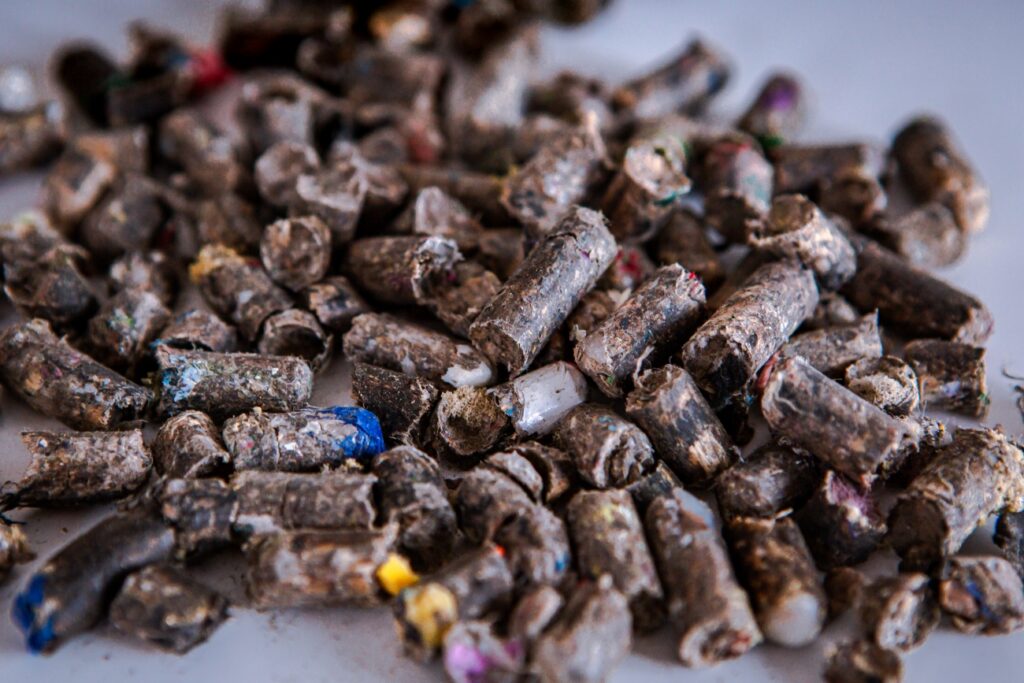About SIRF pellets
The waste journey begins at the WKE depot, when Solid Recovered Fuel (SRF), derived from a mix of commercial and industrial waste and collected from various regulated sources, arrives on site. Upon arrival at WKE’s sorting facility, the material undergoes a meticulous process to categorise the waste before it continues on its journey to become Solid Improved Recovered Fuel (SIRF).
To become superior SIRF, the analysed SRF undergoes further metal extraction and is dried to achieve a 5% moisture content. Additional heavies such as stone, glass and rigid plastics are also removed through the refining process.
The waste is then put through a hammermill system and pelletised, which makes it much easier to transport, store and use in various industrial settings, for example cement, steel power, gasification, paper mills and lime kilns.
WKE’s port-side storage facility accommodates up to 10,000 tonnes of SIRF Pellets, from which it embarks on the final leg of its journey via bulk shipments, rail and road.
SIRF yields numerous benefits, including reduced costs, decreased CO2 emissions, improved storage and handling, a homogenised, reliable end product and stable costs. It’s a sustainable and resourceful way to use what was once considered fit only for landfill

Advantages
WKE SIRF pellets are consistent and have a high net calorific value, and so are an ideal solution for helping high-energy-using industries on their decarbonisation journeys. They also provide the answer to our national fuel security problem by reducing the UK’s reliance on expensive imported fossil fuels.
Bespoke fuels
Thanks to their high specification and customisable content, WKE SIRF pellets are suitable for a wide range of bulk industrial applications. We have the ability to vary specifications to meet individual client requirements, allowing for multi-burner injection and fuels for waste-to-energy facilities.
Production process
The SIRF pellets have more than 50% biomass content and are made from a mix of dry waste materials such as wood, paper, card and non-chlorinated plastics that are carefully processed to produce a clean, highly specified and consistent alternative fuel that’s a strong contender for high-energy users. It’s also cleaner, and with less dust contamination.
